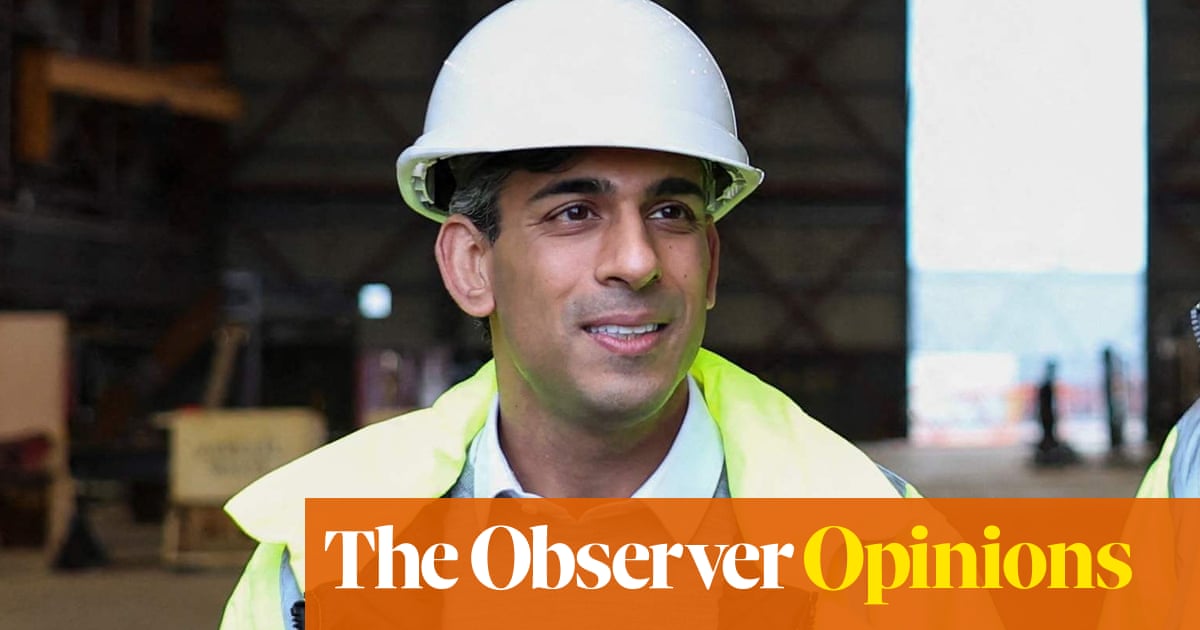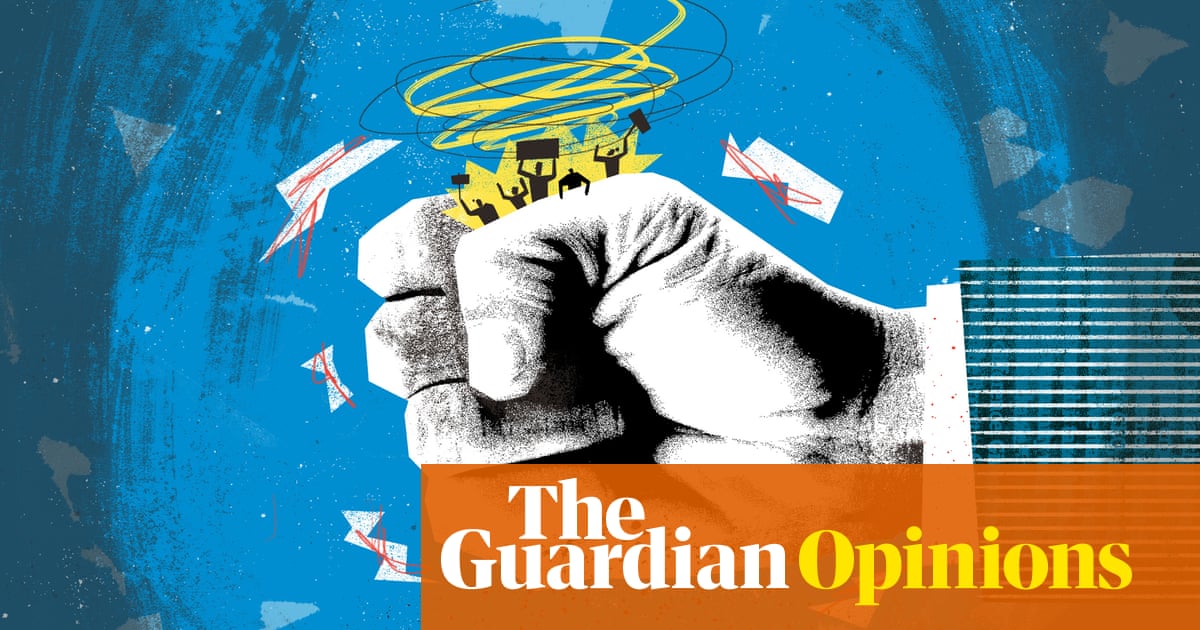
When Rishi Sunak asked Dean, a homeless man at a shelter, whether he was in business and wanted to get into the finance industry, many liberals were quick to ridicule him. Angela Rayner gleefully posted the video, calling it “excruciating”. The shadow levelling up secretary, Lisa Nandy, said: “How much more out of touch could this prime minister be?” Those of a more sympathetic disposition called the conversation “awkward”.
Of course, Sunak has a well-earned reputation for not being in touch with the “common people”. In a 2001 BBC documentary, the then-21-year-old Sunak boasted of the breadth of his friendships. He said: “I have friends who are aristocrats, I have friends who are upper-class, I have friends who are, you know, working-class,” before correcting himself immediately. “Well, not working class.”
He famously wears £450 Prada suede shoes (a bargain by Prada standards) and bespoke £3,500 Henry Herbert suits. And there is the small matter of his personal fortune. He and his tech heiress wife, Akshata Murty, are worth an estimated £730m. He is quite evidently not one of us, as Margaret Thatcher might have said.
This is a man so removed from the everyday world that he appears to get a kick from role-playing service-sector jobs. In 2020, he impersonated a waiter at Wagamama to promote his ill-fated (and fatal) “eat out to help out” scheme after lockdown. Now he’s serving a full English with a smile. What began as a publicity stunt is beginning to look dangerously like a fetish. And there he was last Friday in front of the cameras, serving breakfast to the down and out when Dean appeared.
But stop for a moment: was the ridicule fair? Was his much-derided exchange with Dean at the Passage homelessness shelter in London really that awkward or inappropriate? Was the PM and former Goldman Sachs banker assuming that Dean was one of his own, or was he simply treating him with respect?
Look again at the exchange: “Are you sorting the economy out?” Dean asked Sunak.
“Well, that is exactly what I am trying to do,” the PM replied while serving him a very full English breakfast. By now they were on first name terms.
Dean: “Best for business.”
Sunak: “Do you have … do you work in business? Do you want some fruit?”
Dean: “No, I’m homeless. I am actually a homeless person. But I am interested in business.”
Sunak: “Yeah? What kind of business?”
Dean: “I like finance. It’s good for the city. When finance and stuff does well, we all do well in London.”
Sunak: “Yeah, that’s absolutely right. So I used to work in finance actually.”
Dean: “Yeah, I heard. Ex-investment banker.”
Sunak: “Is that something you’d like to get into?”
Dean: “Yeah, I wouldn’t mind. I don’t know. I’d like to get through Christmas first.”
What did Sunak say that was so wrong? He was chatty, engaged and responded to Dean’s interest in business by talking about his own experience. Why shouldn’t Dean have been in business or had a business and fallen on hard times? Plenty of business people have, and are doing so at an accelerating rate.
In October the Office for National Statistics reported that company insolvencies in England and Wales had hit a 13-year high in the three months to the end of June, with 5,629 insolvencies – the highest quarterly figure since 2009 when the UK was in the grip of the global financial crisis.
Insolvency leads to people not being able to pay their rent or mortgage. Not being able to pay rent or a mortgage leads to homelessness. It’s not a complicated equation. The sad reality is that over the next few years we are likely to see more and more people with failed businesses ending up homeless.
The fact that this conversation became a source of hilarity for so many people says more about us and our prejudices than it does about Sunak. It suggests that we think all homeless people are of a type (“dossers”), that they are not entitled to aspirations and they are incapable of having had a successful past. You just need to click on one of the many links to “rich and famous people who were homeless in the past” to realise what nonsense this is.
When we reported on the lives of people who had died homeless in Britain for our series The Empty Doorway, we profiled Hamid Farahi Alamdari, a gifted physicist who had applied to become Stephen Hawking’s assistant at the University of Cambridge. He ended up homeless, living in a car.
People do not come out of the womb with a “homeless” sticker labelled to them. Life happens. Things go wrong – relationships, work, accommodation, mental health.
Perhaps rather than mocking Sunak, we should praise him for realising that homeless people have a past and can have a perfectly good future. And now he can put his money where his mouth is by helping people like Dean away from homelessness (we will happily introduce him to Housing First projects, which help people rebuild their lives) and into the worlds of finance and business.
Simon Hattenstone is a features writer for the Guardian. Daniel Lavelle writes on mental health, homelessness and social care and is the author of Down and Out: Surviving the Homelessness Crisis












